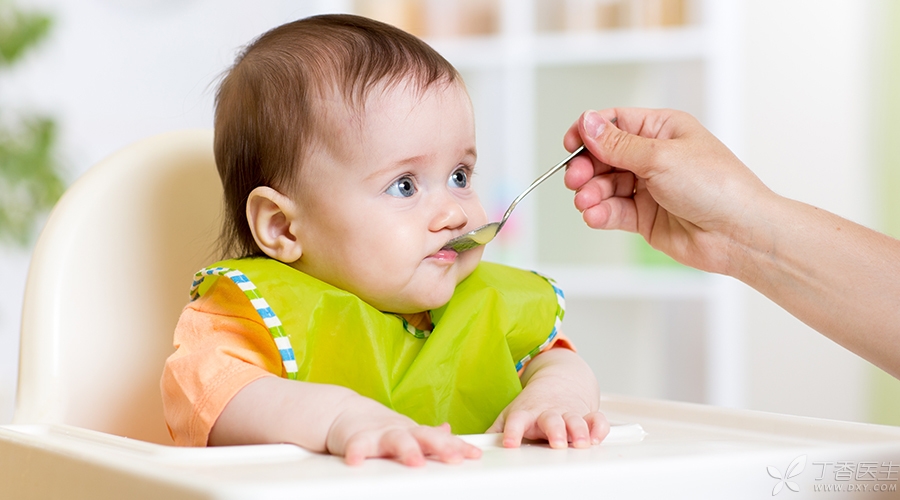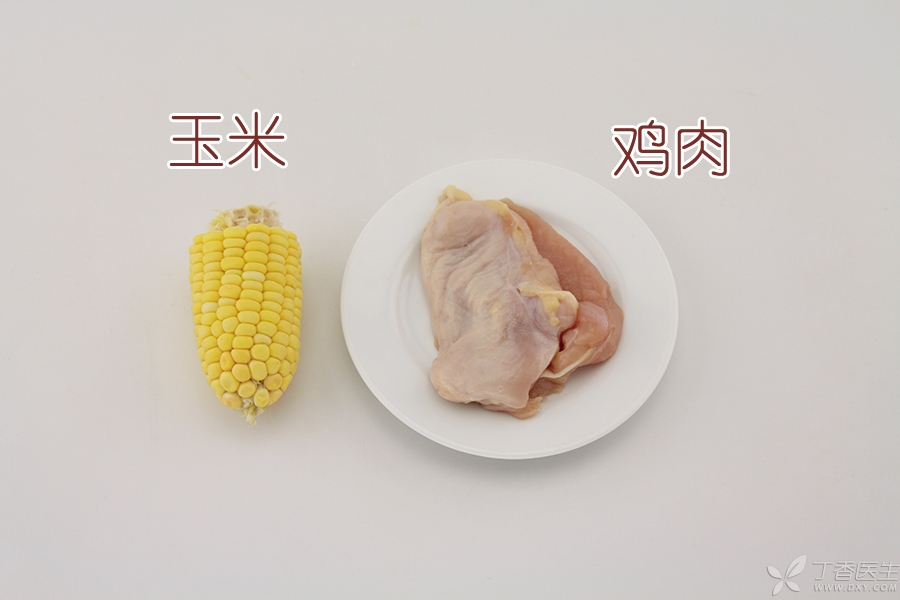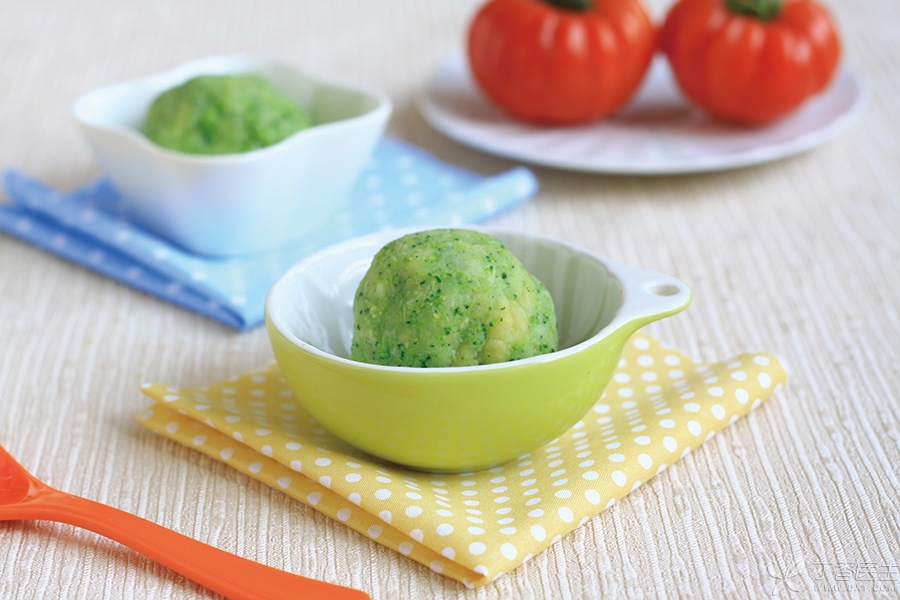
The recipe for the month-old is coming again. Last time, Ding Ma introduced to parents how to eat the 6-month-old baby who added supplementary food at the beginning (click here to see the supplementary food for the 6-month-old baby). Of course, then she will talk about how to eat the 7-month-old baby.
For 7-month-old babies, if there is no accident, most of them can basically accept supplementary foods, and even some babies will have some personal preferences for certain foods.
At this stage, many babies have sprouted their first deciduous teeth, and parents can begin to teach their babies to chew food. Even if the deciduous teeth have not sprouted, even if the food provided to the baby is still muddy, parents can still make chewing movements to guide the baby to imitate.
In this way, when the baby is provided with lumpy and Ding-shaped food, the risk of choking can be reduced, and good chewing habits can also help the baby grow a neat tooth.
It should be noted that at the age of 7 months, breast milk or formula milk is still the main source of nutrition and energy for the baby, and in order to ensure the baby’s energy supply and make up for the shortage of iron content in breast milk, the daily supplementary food should be mainly carbohydrate and iron-rich foods (such as baby’s high-iron rice paste).
With the increase of the types of food that the baby has tried, parents can freely match different foods to enrich the taste of complementary foods, but they should still pay attention to adding only one additional food at a time when trying new ingredients.
Chicken and Corn Mud
Materials
- 30 grams of chicken and 50 grams of corn kernels

Practice
1. Wash the corn, drain the water, and cook it in boiling water.
2. Take out the cooked corn, put it into a blender, add a small amount of plain boiled water, and stir it into corn mud.
3. Sieve the stirred corn mud.
4. Wash the chicken, put it into a pan, add clear water and cook.
5. Take up the cooked chicken, cut it into small pieces, put it into a blender, add a small amount of plain boiled water, and stir it into chicken paste.
6. Mix chicken mud and corn mud according to the ratio of 1: 2, and mix well.

Ding Ma’s Comments on
The 7-month-old baby has limited chewing ability, and the outer skin of corn contains indigestible resistant starch, so the corn paste is best sieved before being eaten by the baby.
Corn has a relatively high starch content and is also rich in minerals such as potassium and magnesium, as well as nutrients such as B vitamins and carotenoids. Chicken, as meat, can provide high-quality nutrients such as protein and fat. As long as the baby has tried both foods separately, parents can try to match them for the baby to eat.
Parents can also use their brains to replace the ingredients in the recipe to enrich the baby’s supplementary foods, such as replacing corn with western blue flowers and yams, and replacing chicken with fish and chicken liver.

Spinach brown rice paste
Materials
- 20 grams of white rice, 5 grams of brown rice, 1 spinach and 400 ml of clear water.

Practice
1. Wash white rice and brown rice twice, then soak them in clear water for 1 hour.
2. Remove the head of spinach, wash it, blanch it in boiling water, and take it out.
3. Put spinach into a blender, add a little water and stir into vegetable paste.
4. Pour the soaked white rice and brown rice into the blender, add a small amount of clear water, and stir into rice paste.
5. Pour the rice paste into the pan, add clear water, boil with high heat, change to low heat to boil the rice grains until they expand, then put spinach puree into the rice paste, and then boil for about 5 minutes.
6. Pass the cooked spinach brown rice paste through a filter screen, press it with a spoon while filtering, and take the filtered spinach brown rice paste.

Ding Ma’s Comments on
Refined rice often loses a large amount of B vitamins. Adding brown rice can enrich nutrition. However, brown rice has the disadvantage that it is not easy to cook and needs to be soaked in advance.
After washing vegetables with running water, blanch them in boiling water, which can reduce the loss of heat-sensitive vitamins in vegetables. In addition, spinach has a relatively low iron content (2.9 mg/100g). If the baby can accept it, it is more perfect to add another 10 g of liver mud to this recipe (give the baby liver, be careful not to exceed 25 g per week).
In addition to spinach, you can also choose vegetables such as cabbage, carrot and rape. In addition to brown rice, millet and rice paste can also be changed for your baby to eat.

Broccoli mashed potatoes
Materials
- 20 grams of potatoes and 10 grams of broccoli

Practice
1. Peel potatoes, cut them into slices, steam them in a boiling water pan, and grind the steamed potatoes into mud.
2. Wash broccoli and blanch the tender cauliflower in boiling water.
3. Drain the blanched western blue flowers, take them out and chop them.
4. Mix mashed potatoes with broccoli powder and stir well.

Ding Ma’s Comments on
Potatoes are rich in carbohydrates, In terms of nutritional composition, potatoes are closer to staple foods such as rice and wheat, and the amino acid composition of protein in potatoes is closer to that of human body than that of rice and wheat. At the same time, potatoes are also rich in vitamin C, potassium and B vitamins. Potatoes also contain quite a lot of glutamate, which tastes very pleasing after heating and is a delicious food for all ages in Xian Yi.
West blue flower is also rich in nutrition, among which-carotene content even exceeds carrot, which is the source of very high quality vitamin A.
The protein contained in the recipe is all plant protein. Parents can add some breast milk or formula milk to make milk-flavored mashed potatoes, which is rich in nutrition and taste.

Finally, I would also like to remind parents that the baby should brush his teeth from the beginning of the first deciduous tooth to protect the health of the deciduous tooth. After each supplementary food, the baby can give him two drinks of plain boiled water to rinse his mouth to simply clean his mouth.
